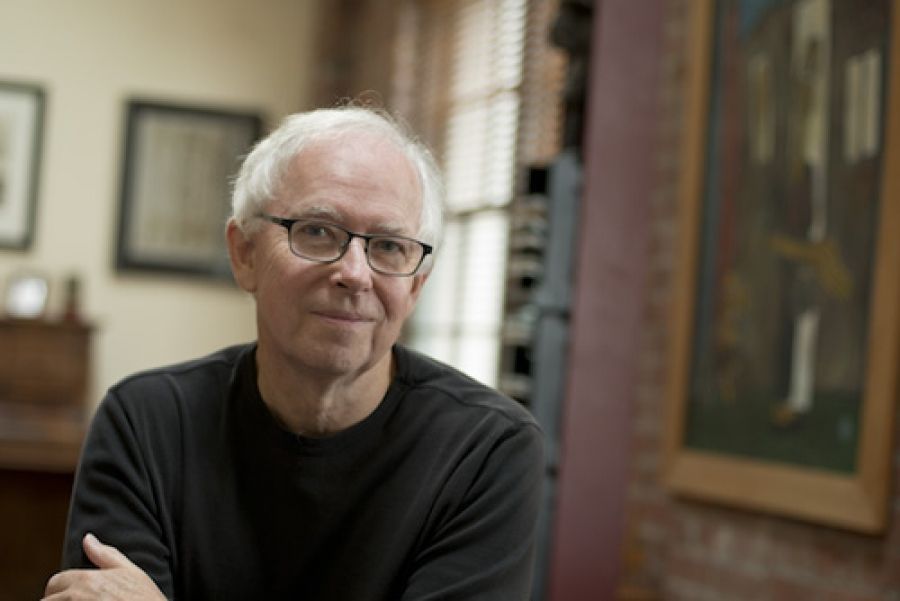
- Free Article: No
- Contents Category: Poet of the Month
- Custom Article Title: Bill Manhire is Poet of the Month
- Review Article: No
- Online Only: No
- Custom Highlight Text:
Before I knew about poetry it would have been the Grimms, plus Orson Welles reading ‘The Happy Prince’. Then R.A.K. Mason, Carl Sandburg, Robert Creeley – at which point I developed a taste for clunkiness, awkwardness, tonal non sequiturs, all the way from Wyatt, Hardy, and the weirder parts of Browning, to Frank O’Hara and Stevie Smith. My poetry tastes have always been pretty chaotic: in my reading universe, Lorine Niedecker, John Betjeman, Adrienne Rich, and the Beowulf poet all rub along together.
Are poems inspired or crafted?
Craft always seems to me a secondary thing – at least the conscious deployment of it. But then inspiration is such a dodgy notion. I’ve never believed in bolts of lightning – but I do think you can find ways of putting yourself out in the weather when a big thunderstorm is brewing. Reading other poets is one of the ways.
What prompts a new poem?
With me, it’s usually something musical, some nagging phrase. Though I’ve found vigorous commissions productive, too – they push me sideways from myself.
What’s the difference between poetry and prose?
My favourite definition of a poem is Valéry’s ‘a prolonged hesitation between sound and sense’. Poems hesitate, whereas prose heads straight off towards meaning.
What circumstances are ideal for writing poetry?
Sitting in a rowboat on a lake would be pretty good. But things never seem to work out that way.
Which poet would you most like to talk to – and why?
I’d like to have a really awkward conversation with Emily Dickinson. I’d enjoy the mix of suddenness and silence.
What do poets need most: solitude or a coterie?
Solitude, especially when writing. A coterie is a terrible prospect, but friendships and a sense of community matter. And not just the poets you know personally. The poets you don’t know but whose work you care for – the mighty dead as well as your contemporaries – they’re part of your community, too.
What have you learned from reviews of your work?
I’ve learned just how many strongly held views of poetry there are out there. Some people want timeless wisdom and newspaper editorials. Others want heartfelt emotion, or demand particular political/social agendas. Others yearn for something gasping and intangible like ‘lyric beauty’. In my own case, some reviewers have been annoyed to discover that the poems can sometimes be quite unlike each other, and even (inside individual poems) rather at odds with themselves.
If plato allowed you to keep one poem or poetry collection in his republic, what would it be?
I probably can’t have Waiting for Godot, though I’d want to fight with the genre police on its behalf. Maybe Aram Saroyan’s ‘eyeye’ could keep watch above Plato’s entrance way. It looks happy on my car number plate.
Do you have a favourite line of poetry?
A three-liner, sorry: ‘Goodbye’ by Bill Knott. ‘If you are still alive when you read this / close your eyes. I am / under their lids, growing black.’
Is poetry generally appreciated by the reading public?
I think that the reading public is a lot smarter than most poets think it is.


Comments powered by CComment